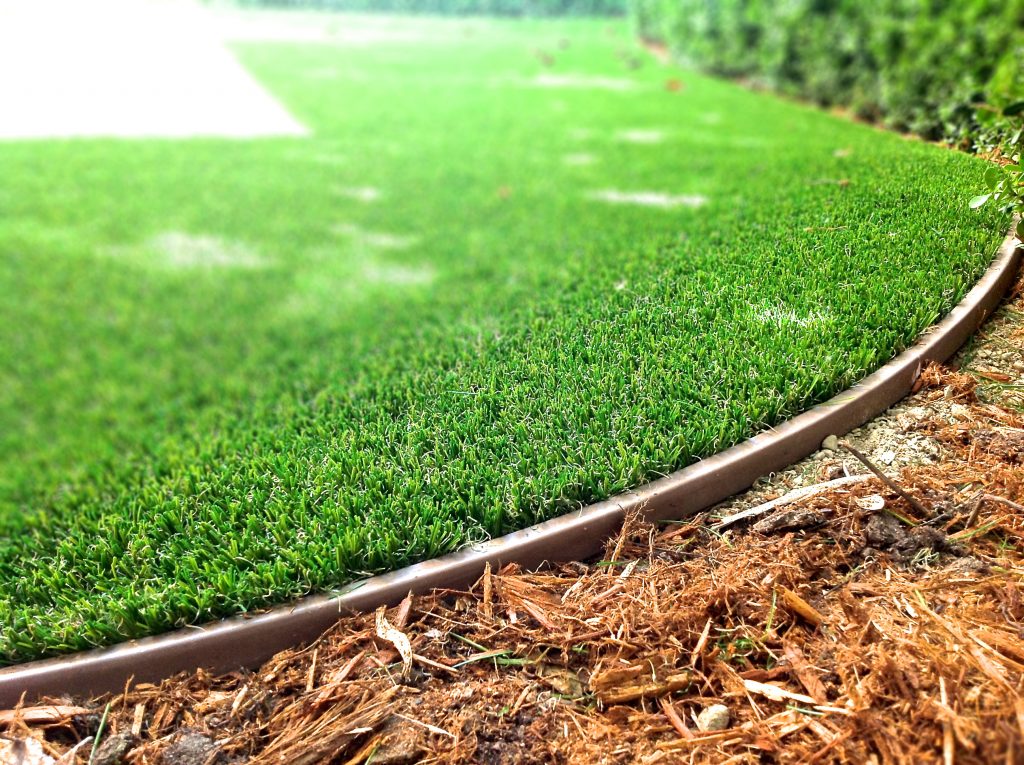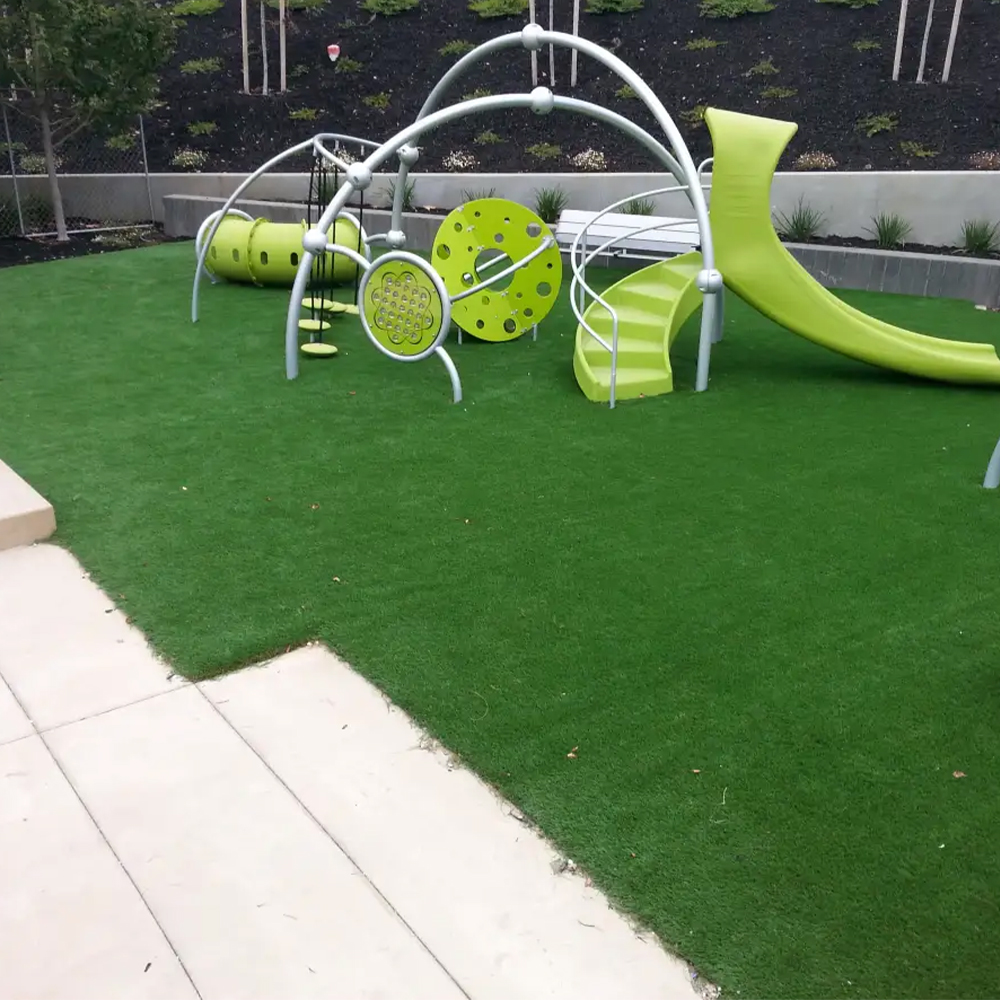Upgrade Your Outdoor Space with Arizona Artificial Turf for a Vibrant Green Look
Upgrade Your Outdoor Space with Arizona Artificial Turf for a Vibrant Green Look
Blog Article
Explore the Environmental Benefits of Opting for Synthetic Grass Solutions
The adoption of synthetic grass services presents a compelling chance to address pushing ecological challenges. By significantly decreasing water usage and reducing the application of dangerous chemicals, these alternatives not only advertise lasting landscaping yet likewise protect neighborhood ecological communities. The reduced carbon footprint associated with lowered upkeep activities contributes to an extra sustainable approach to land administration. The effects of these benefits prolong past plain conservation initiatives, increasing concerns concerning their long-lasting effect on environment preservation and total ecological equilibrium. Exploring these dimensions reveals a complicated interplay worth considering.
Water Conservation Conveniences
One of the most significant benefits of artificial turf is its capacity to save water. In contrast, fabricated lawn does not require watering, significantly reducing the overall demand for water resources.
By getting rid of the requirement for normal watering, artificial turf adds to lasting landscape practices and helps minimize the environmental effect of too much water usage. In addition, the conservation of water encompasses the decrease of runoff, which can cause dirt disintegration and river air pollution.
Furthermore, the installation of artificial turf enables municipalities and home owners to designate water sources much more successfully, concentrating on vital uses such as alcohol consumption water and farming. The shift in the direction of synthetic grass not only advertises accountable water use yet also straightens with broader ecological objectives targeted at maintaining natural sources.
As neighborhoods progressively prioritize sustainability, the water conservation benefits of synthetic grass provide an engaging situation for its fostering in industrial and domestic landscaping projects.
Minimized Chemical Use
The change to artificial turf considerably decreases the dependence on chemical therapies typically utilized in all-natural grass maintenance. Conventional lawn monitoring generally involves the application of fertilizers, chemicals, and herbicides to promote growth and control bugs. These chemicals can present risks to human health, regional wildlife, and the atmosphere, adding to dirt and water contamination.
In comparison, fabricated lawn gets rid of the need for these hazardous materials. By decreasing the release of artificial compounds right into the ecological community, synthetic turf advertises healthier soil and water systems.
In addition, the absence of chemical drainage connected with man-made lawn setups aids shield neighborhood rivers from air pollution, supporting water life and preserving biodiversity. Turf installation phoenix az. As neighborhoods increasingly focus on lasting techniques, going with fabricated turf provides a practical option that straightens with environmental conservation objectives. With this change, homeowner can delight in lavish green spaces without endangering ecological wellness, leading the means for a much more lasting future
Reduced Carbon Footprint

Furthermore, the setup of synthetic grass can cause significant water preservation. All-natural grass call for significant amounts of water for watering, which not only includes to the carbon footprint connected with water extraction and treatment yet also stress local water resources. On the other hand, man-made lawn needs marginal upkeep, calling for no watering, thus substantially reducing water usage and its linked energy prices.
In addition, the longevity of man-made lawn adds to its lower carbon impact. With a life expectancy of up to 15 years or more, the demand for constant substitutes is decreased, causing less waste and reduced energy consumption in production and getting rid of standard yard choices. Overall, synthetic grass presents a lasting choice for ecologically aware landscaping.
Environment Conservation
Environment preservation is a crucial consideration in the discussion over landscaping choices, particularly when comparing artificial lawn to all-natural turf. All-natural yard lawns frequently call for considerable maintenance, including using chemicals, plant foods, and herbicides, which can detrimentally impact regional communities. These chemicals can leach into the soil and waterways, damaging native plants and animals and interrupting neighborhood environments.
In contrast, synthetic grass provides a chance to decrease the ecological impact of landscaping. By going with artificial turf, home owners can reduce the disturbance of all-natural habitats related to conventional grass care techniques. Man-made grass gets rid of the requirement for dangerous chemicals, consequently securing neighboring wildlife and maintaining the integrity of bordering ecological communities. Moreover, the setup of synthetic grass can result in the conversion of former lawn additional hints areas into even more biodiverse landscapes, such as pollinator gardens or native plant locations, which can sustain local wild animals.
Ultimately, the transition to fabricated grass not only saves water and lowers maintenance efforts but also cultivates a much more unified partnership between human activities and the native environment, promoting habitat preservation while doing so.
Long-Term Sustainability
Long-lasting sustainability is a critical consider reviewing the advantages of synthetic grass over conventional turf lawns. One of one of the most considerable benefits of synthetic lawn is its sturdiness; it can last up to 15-20 years with very little maintenance, whereas all-natural grass requires frequent reseeding and substitute. This long life minimizes the demand for consistent sources, such as water, plant foods, and chemicals, which are essential for preserving a healthy grass lawn.
Furthermore, man-made turf adds to a reduction in carbon discharges associated with yard care devices. Standard grass usually need gas-powered mowers, leaners, and blowers, all of which contribute to air pollution. Turf installation phoenix az. On the other hand, synthetic grass removes the need for such equipment, advertising a read the article cleaner atmosphere
In addition, the production of synthetic grass increasingly makes use of recycled materials, boosting its sustainability account. As manufacturers take on eco-friendly techniques, the ecological impact of artificial lawn proceeds to decrease.

Final Thought
The adoption of fabricated turf remedies offers substantial ecological advantages, including significant water preservation, reduced dependence on hazardous chemicals, and a lower carbon impact. Additionally, synthetic turf aids in preserving all-natural environments by decreasing land disruption and promoting long-term sustainability via the use of sturdy products. Collectively, these aspects highlight the possibility of synthetic grass to contribute positively to environmental health and wellness and provide a sensible choice to traditional landscape design methods in a progressively resource-conscious continue reading this world.
In contrast, fabricated turf does not need watering, significantly decreasing the overall demand for water sources. By lessening the launch of artificial compounds into the ecological community, man-made lawn advertises healthier dirt and water systems.
In addition, the setup of fabricated grass can result in significant water preservation. In contrast, artificial grass needs minimal maintenance, calling for no watering, thus substantially decreasing water usage and its connected power prices.

Report this page